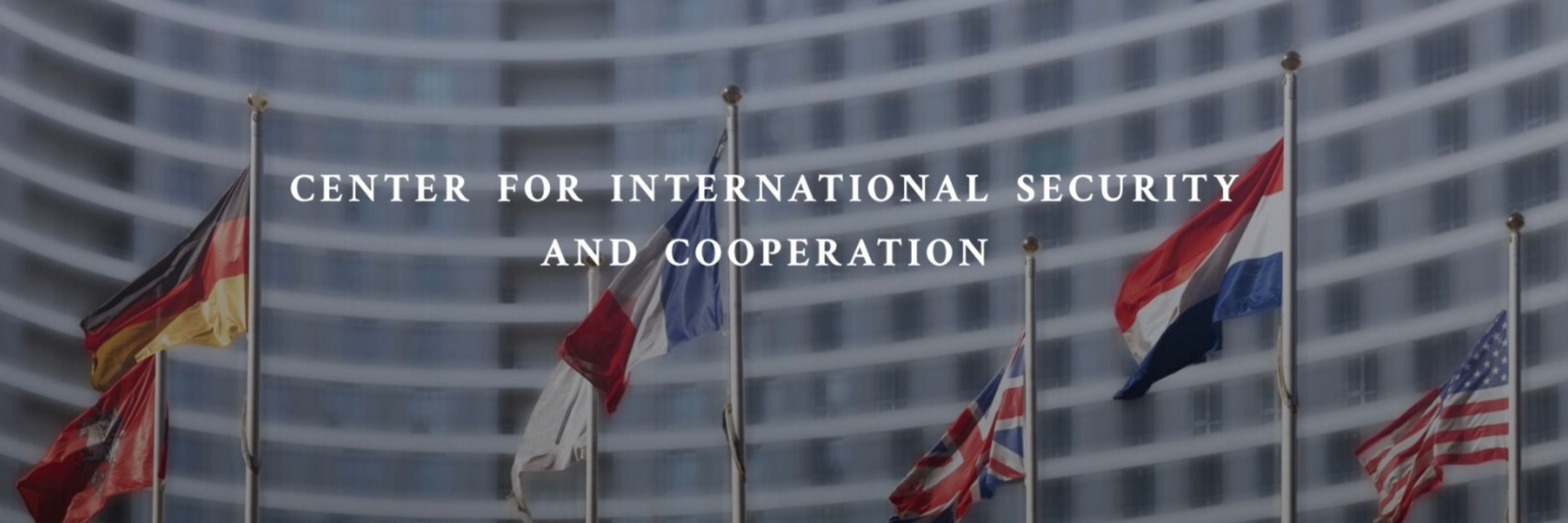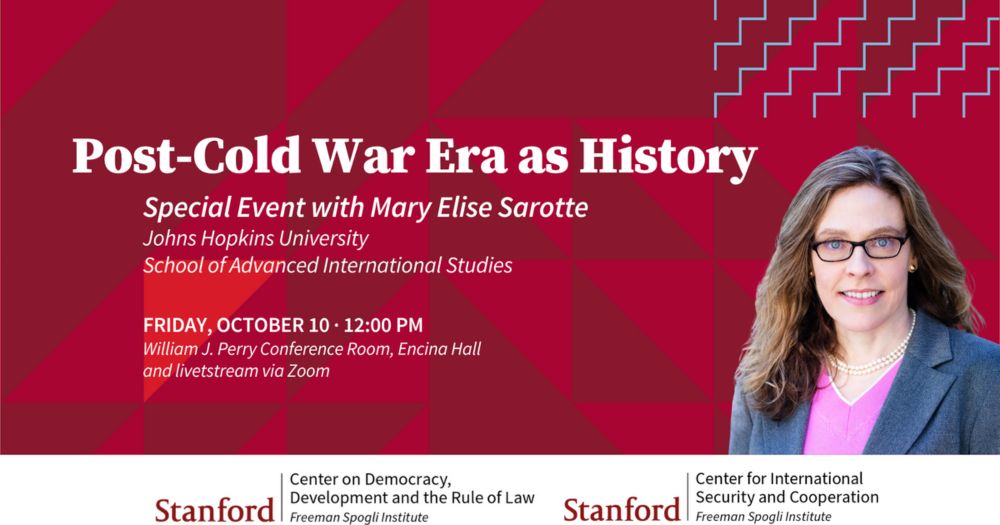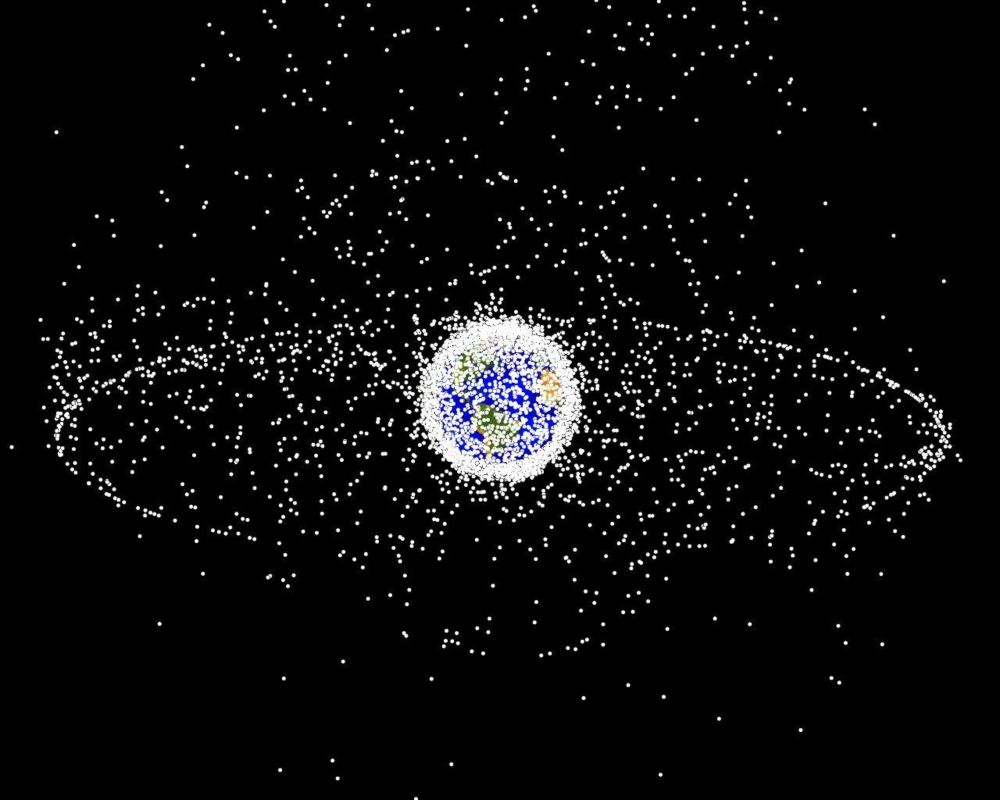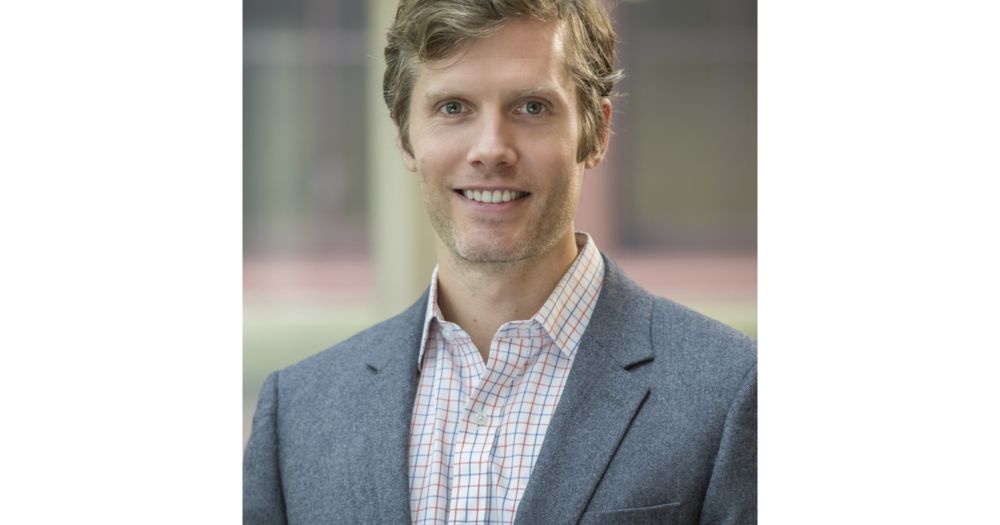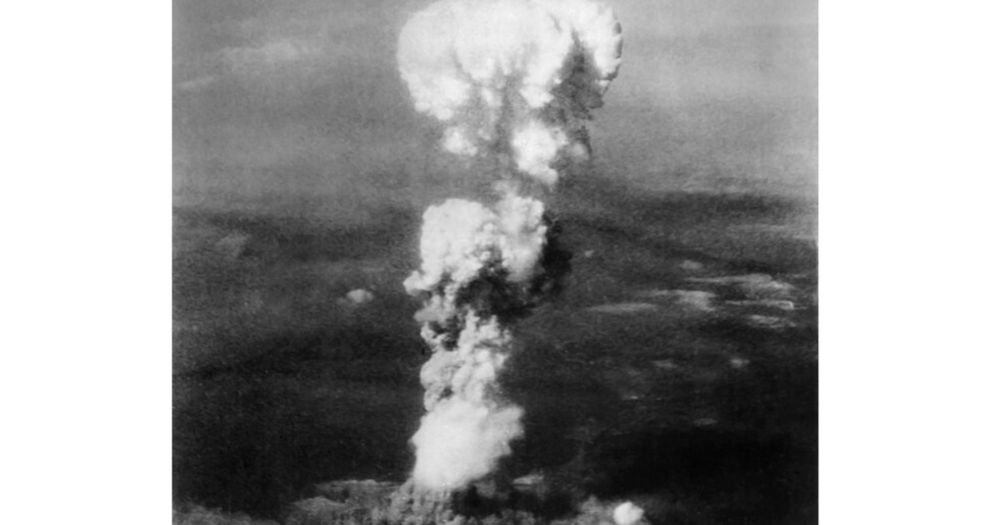Stanford CISAC
@stanfordcisac.bsky.social
860 followers
120 following
220 posts
Stanford's Center for International Security and Cooperation produces knowledge to build a safer world and trains the next generation of security specialists.
Visit us at: https://cisac.fsi.stanford.edu/
Posts
Media
Videos
Starter Packs
Reposted by Stanford CISAC
Reposted by Stanford CISAC
Reposted by Stanford CISAC
Stanford CISAC
@stanfordcisac.bsky.social
· Aug 28

Security Through Cooperation | Stanford University Press
Russian officials and experts often voice the view that the United States was hell-bent on undermining, even destroying Russia during the turbulent period of the Soviet breakup thirty years ago. The p...
www.sup.org
Reposted by Stanford CISAC
Stanford CISAC
@stanfordcisac.bsky.social
· Aug 14

Winning Hearts and Minds? How the United States Reassured During the Russo-Ukrainian War - Lauren Sukin, Stephen Herzog, Alexander Lanoszka, 2025
Decades of scholarship hold that great powers shore up global confidence during crises with strong demonstrations of resolve. A much smaller literature critique...
journals.sagepub.com
Reposted by Stanford CISAC
